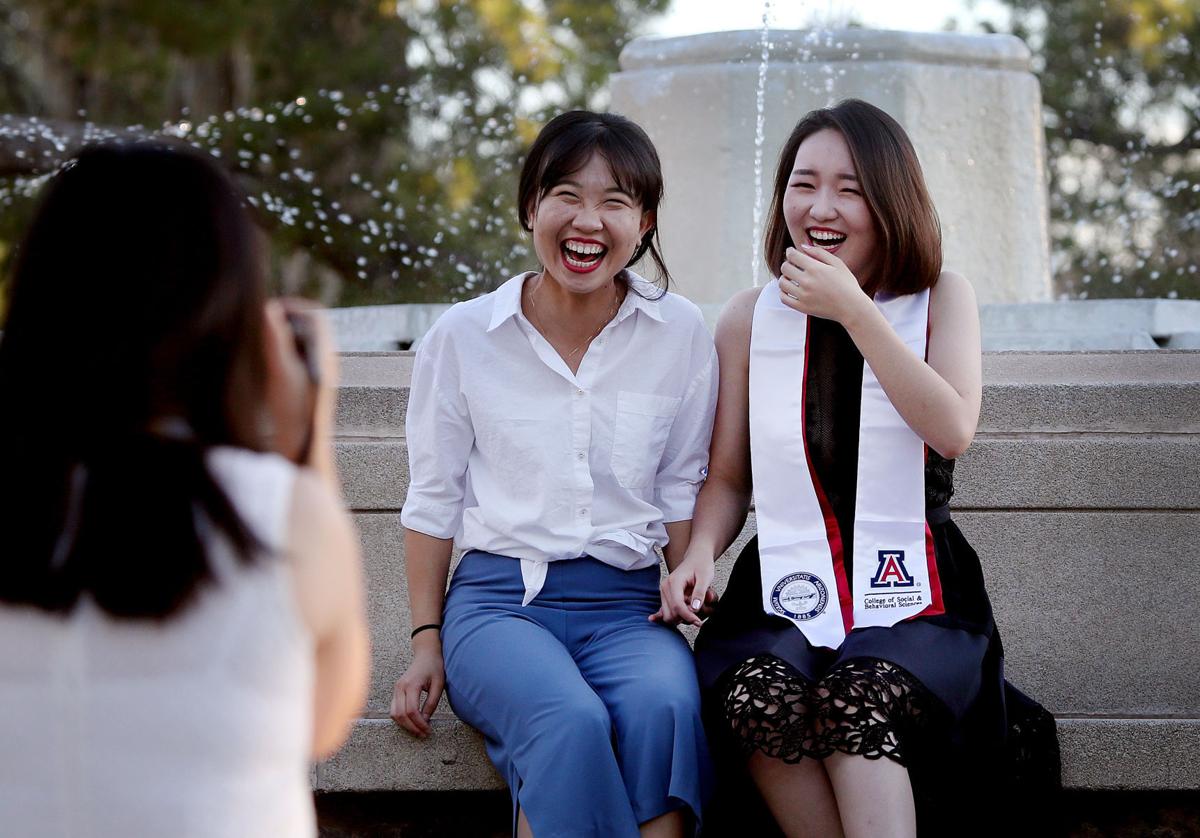UA alumni reported a greater feeling of well-being, more success in life post-graduation, a stronger emotional connection to their alma mater and more bang for their buck at the UA than their peers nationally, according to the 2017 University of Arizona-Gallup Alumni Report.
“I wasn’t surprised at all,” was the general refrain from UA officials, including President Robert C. Robbins, but also Andy Harris, a 1989 engineering graduate.
Harris went on to get his MBA at the University of Southern California and is now CEO of Accella Performance Materials, a chemical manufacturing facility.
“I credit the UA for where I am today, and it’s one of the best decisions I made in my life,” he said.
Gallup conducted the survey on behalf of three campus entities: student affairs and enrollment management, academic initiatives and student success; the UA Alumni Association; and marketing and brand management.
The yearlong partnership cost the university $130,000, which included access to Gallup’s proprietary “Well-Being Index” national collegiate database, data analysis and benchmarking, said David Miller, UA director of strategic communications.
Gallup surveyed more than 4,200 UA alumni who graduated with a bachelor’s degree between 1949 and 2016, and asked them to respond to questions meant to foster a holistic view of college graduates’ lives spanning topics such as well-being, collegiate experience, workplace engagement and alumni attachment.
Responses were compared with three groups including the Gallup-Purdue national index of about 67,000 U.S. graduates between 2014 and 2016, about 3,500 graduates from Pac-12 schools and about 5,500 grads from peer institutions determined by the Arizona Board of Regents.
What they found was that UA grads are much more likely to be thriving in each element of well-being, which includes purpose, social, financial, community and physical.
The UA was on-par or exceeded the other comparison groups in every variable.
Some key findings:
- Nine out of 10 felt their education was worth the cost.
- 63 percent said they found a professor who excited them about learning, which was found to be a driving factor for alumni to feel prepared in the job market.
- 34 percent of UA grads were also more likely to have a job waiting for them after college than the 28 percent nationally, and felt well prepared for their first jobs.
- 67 percent of UA alumni, compared with 57 percent nationally, said they found their ideal job, and 80 percent are interested in the work they do.
- 30 percent of UA grads felt a strong emotional connection to their school compared with 20 percent of students nationally.
“The on-campus experience is exceptional,” Harris said. “There’s the legacy, there’s the spirit, there’s heritage.”
“A UA graduate is truly a Wildcat for life,” said Melinda Burke, president of the UA Alumni Association and vice president of alumni relations.
“We always talk about how proud we are of the fan base at the UA and the loyalty of alumni,” Burke said. “A lot of what we say is just institutional pride, but it was awesome to discover data that not only backed it up, but sets us apart from other institutions.”
Earlier this year, U.S. News and World Report released its best college rankings and placed the UA 124th overall among the nation’s top 300 colleges, falling behind Arizona State University, which moved up to 115th on the list.
Those rankings were determined by factors including retention and graduation rates, faculty resources, financial resources, expert opinions, student excellence and alumni giving.
This survey measured different variables of the college experience, Burke said. “It’s really apples and oranges.”
The UA decided to conduct this study because it was interested in “the great way in which (Gallup) is framing the lifelong value of college education. And we wanted to look at that from alumni perspective,” said Jennifer Pickard, assistant vice president for divisional initiatives and planning.
The results also reaffirmed the UA’s 100 percent engagement initiative, which encourages students to engage outside of the classroom and became official policy in 2015. This includes activities such as internships or undergraduate research assistantships.
“This helped to take some of the anecdotes that you hear all the time,” Pickard said, such as the increased success of those who get internships and “really helped us to solidify that these things matter.”
“And it’s such a tight-knit community,” Harris said — “not just the UA community — but the whole Tucson community.”
That balance between schoolwork and life extended into the rest of his life, he said.
His daughter, Hannah, is now a sophomore at the UA. “We literally toured the whole country,” Harris said. “She narrowed it down to five schools … and she chose Arizona.”





